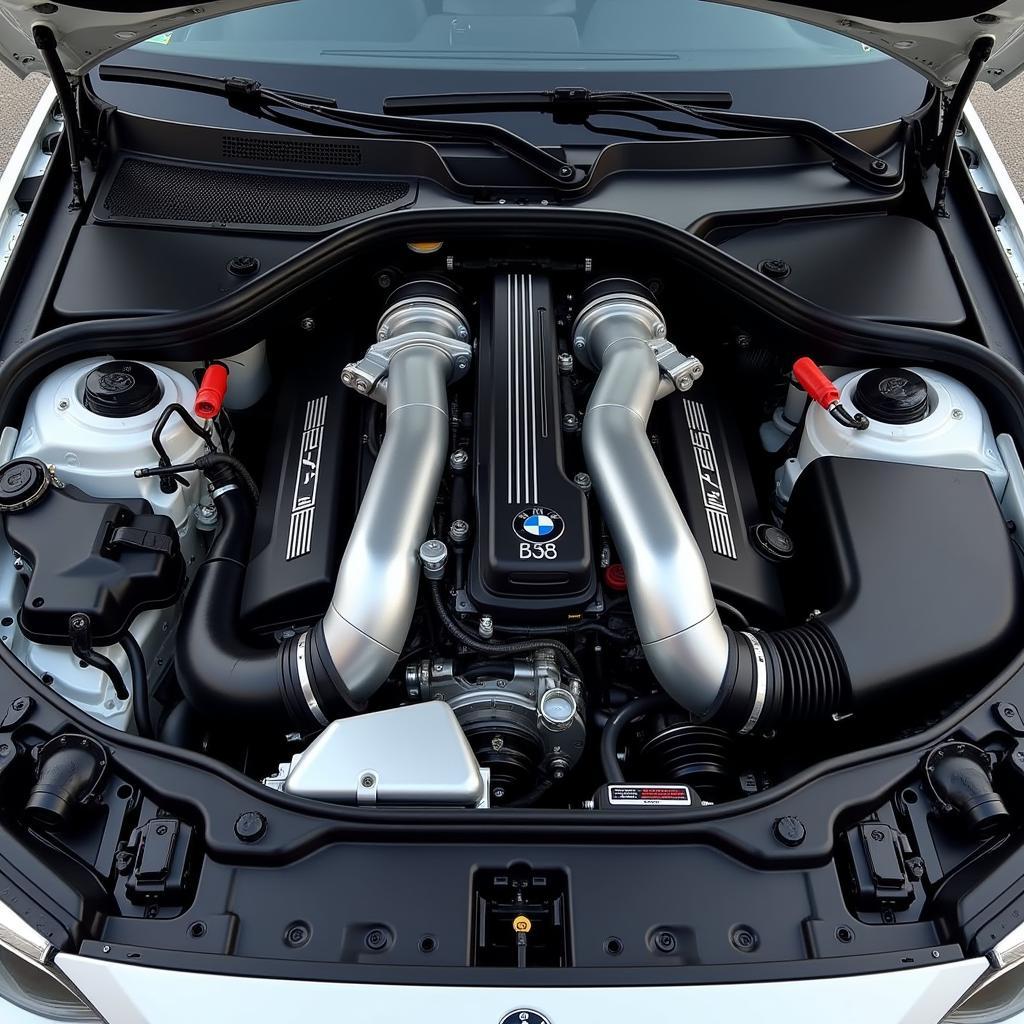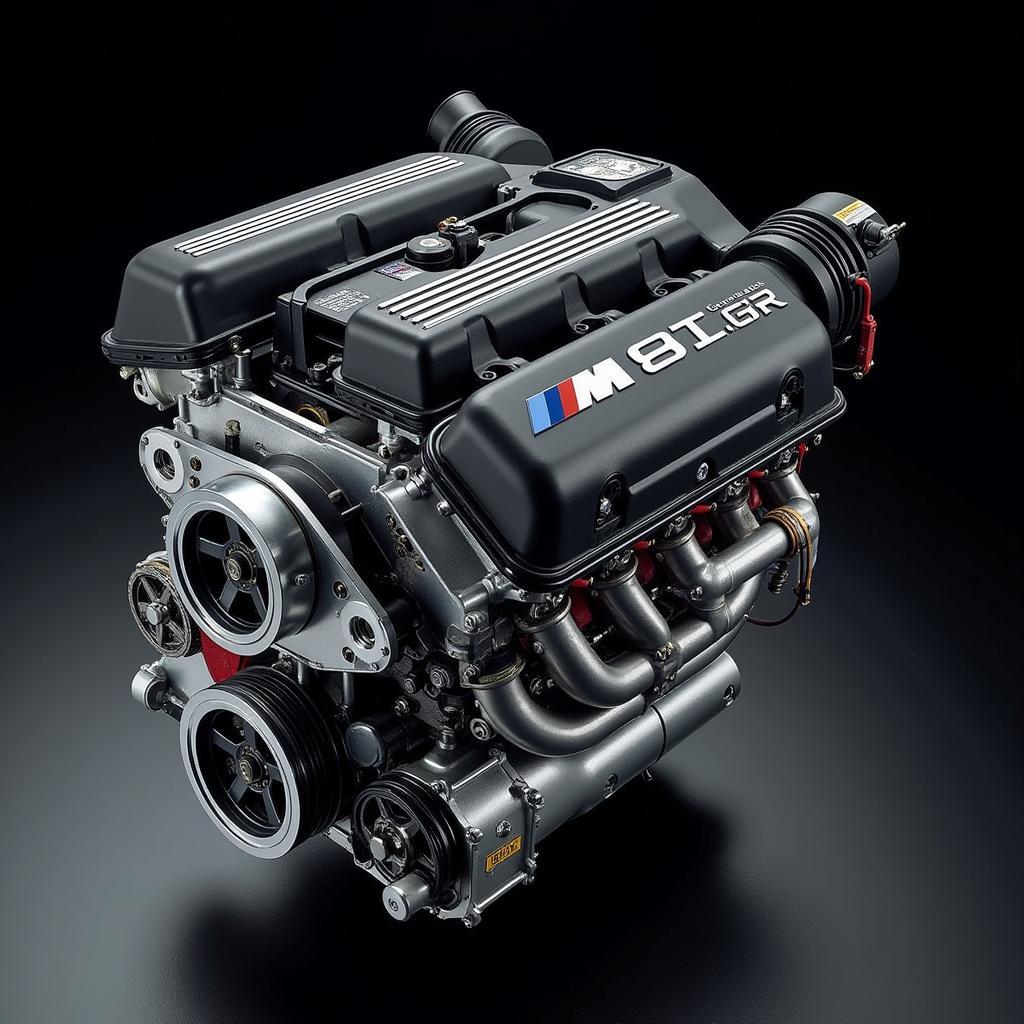The distinctive BMW 140i sound is a key part of its appeal, but it can also be a source of concern when things go wrong. This guide explores the normal and abnormal sounds of the BMW 140i, helping you understand what you’re hearing and how to address potential issues. We’ll cover everything from the satisfying purr of a healthy engine to the troubling knocks and rattles that signal problems.
Understanding Your BMW 140i’s Normal Sounds
Every BMW 140i has its own unique sound signature, a blend of engine noise, exhaust note, and tire hum. A healthy 140i should produce a refined, sporty sound, particularly when accelerating. This is the sound of the powerful B58 engine doing its job, a satisfying blend of performance and precision. Understanding this baseline sound is crucial to recognizing when something is amiss.
The Engine’s Purr
The heart of the BMW 140i sound is the B58 engine. This inline-6 twin-turbo engine is known for its smooth and powerful delivery, producing a distinctive purr. This sound is typically more pronounced during acceleration and should fade into a gentle hum at cruising speeds.
The Exhaust Note
The exhaust system plays a significant role in shaping the 140i’s sound. The factory exhaust is designed to deliver a sporty yet refined tone. Modifications to the exhaust system can significantly alter this sound, from a deep rumble to a high-pitched whine.
Tire and Road Noise
The type of tires and the road surface contribute to the overall sound you hear inside the cabin. High-performance tires often generate more road noise than standard tires. Similarly, rough road surfaces can amplify tire noise, making it more noticeable.
 BMW 140i Engine Bay
BMW 140i Engine Bay
Identifying and Troubleshooting Abnormal BMW 140i Sounds
While a certain level of engine and road noise is expected, unusual sounds can indicate underlying problems. Knowing how to identify these sounds is the first step towards effective troubleshooting.
Knocking and Rattling Sounds
Knocking or rattling sounds coming from the engine are often signs of serious issues. These could indicate problems with the connecting rods, bearings, or pistons. Ignoring these sounds can lead to catastrophic engine failure.
Whining or Squealing Sounds
A high-pitched whining or squealing sound could point to a failing belt or pulley. The serpentine belt, which drives various engine accessories, is a common culprit. A worn-out belt can slip, producing a squealing noise.
Hissing or Whistling Sounds
Hissing or whistling sounds can be indicative of leaks in the exhaust system or vacuum lines. These leaks can affect engine performance and fuel efficiency.
Grinding or Scraping Sounds
Grinding or scraping sounds, especially when braking, often indicate worn brake pads or rotors. Ignoring these sounds can lead to reduced braking performance and potential safety hazards.
Diagnosing BMW 140i Sound Issues with Remote Software
Modern diagnostic tools allow for remote software programming and diagnostics, offering a convenient and efficient way to pinpoint the source of unusual sounds. This technology enables technicians to access vehicle data remotely and perform software updates, potentially resolving software-related sound issues without a physical visit.
Remote Diagnostics and Programming
Remote diagnostics can identify issues with the engine control unit (ECU), transmission control module (TCM), and other electronic systems that could be contributing to unusual sounds. Remote programming allows for software updates and calibrations to address these issues.
Benefits of Remote Diagnostics
Remote diagnostics offer significant benefits in terms of convenience, cost savings, and efficiency. They can reduce diagnostic time and eliminate the need for multiple trips to the workshop.
Conclusion: Keeping Your BMW 140i Sounding Its Best
Understanding the normal and abnormal sounds of your BMW 140i is crucial for maintaining its performance and longevity. By paying attention to these sounds and utilizing modern diagnostic tools like remote software programming, you can address potential issues early and keep your 140i running smoothly. Don’t hesitate to seek professional help if you’re unsure about the source of a particular sound.
FAQ
-
What does a healthy BMW 140i engine sound like? A healthy B58 engine should produce a smooth, refined purr, especially during acceleration.
-
What are common causes of knocking sounds in a BMW 140i? Knocking sounds can indicate serious engine problems, such as issues with connecting rods, bearings, or pistons.
-
How can remote diagnostics help with BMW 140i sound issues? Remote diagnostics can identify software-related problems and allow for remote programming and updates.
-
What should I do if I hear a whining sound from my BMW 140i? A whining sound could indicate a failing belt or pulley, and should be inspected by a professional.
-
Why is it important to address unusual BMW 140i sounds promptly? Ignoring unusual sounds can lead to more serious and costly repairs down the line.
-
Can exhaust modifications affect the BMW 140i sound? Yes, modifications to the exhaust system can significantly alter the sound of the car.
-
What type of tires can reduce road noise in a BMW 140i? Tires designed for comfort and reduced noise typically have softer tread compounds and specific tread patterns.
Need assistance with your BMW 140i sound? Contact us via Whatsapp: +1 (641) 206-8880, Email: [email protected] or visit us at 276 Reock St, City of Orange, NJ 07050, United States. Our 24/7 customer support team is ready to help.
Explore more related articles and resources on CARDIAGTECH for further insights into BMW diagnostics and troubleshooting.

